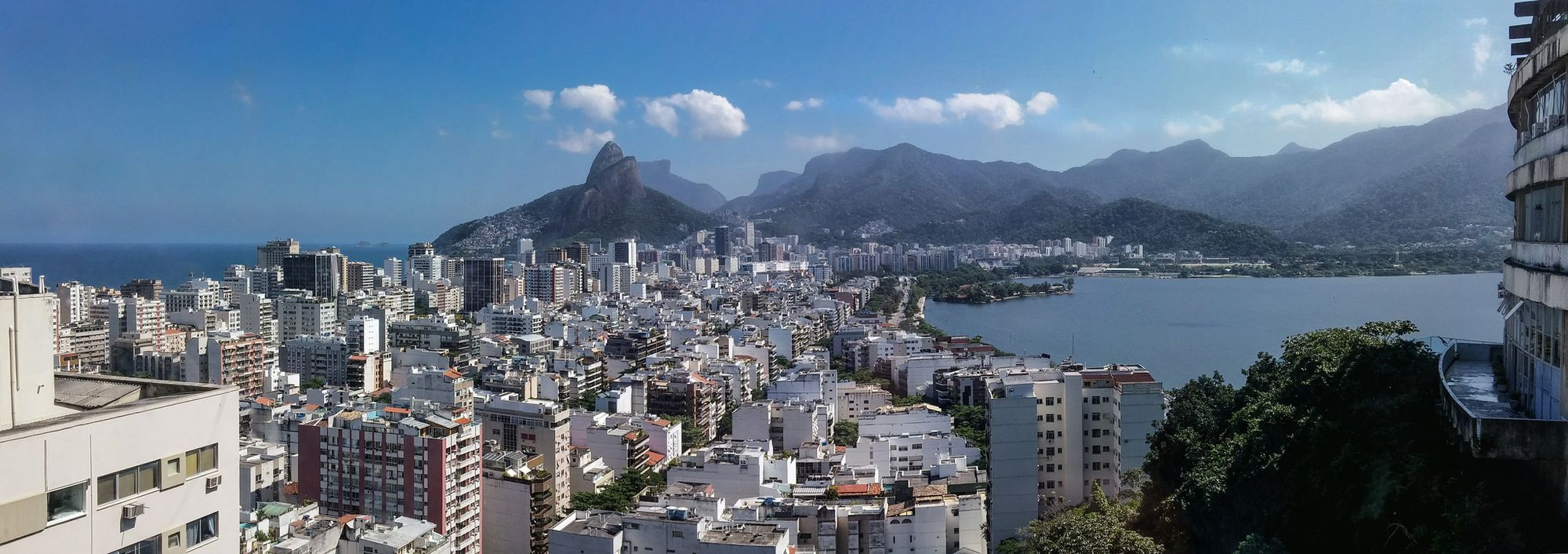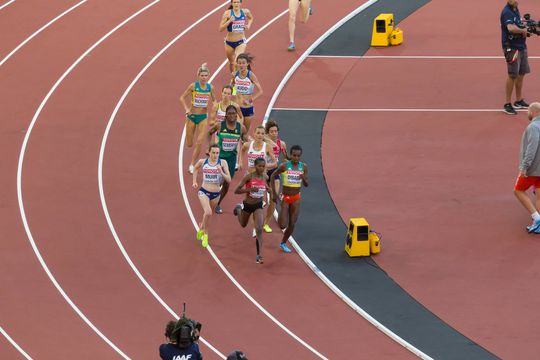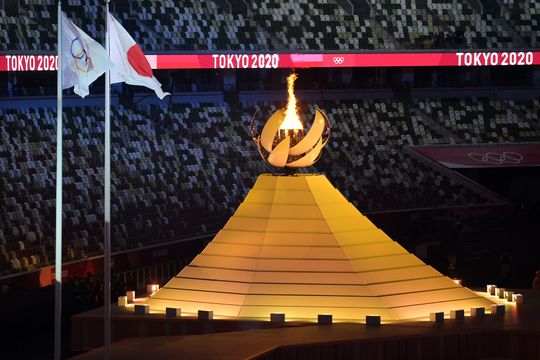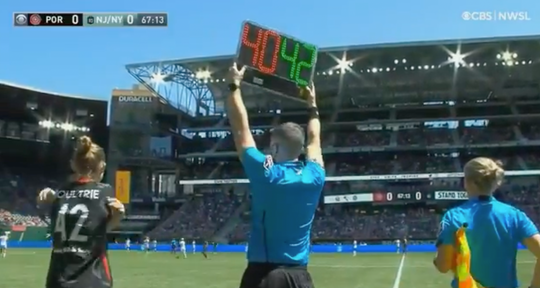The Olympics have always been a paradox.
The Games are a contradictory showcase of both the triumph and the corruption of the world. There have been long struggles to achieve equality between men and women in terms of both events and of athletes in attendance, and that slow march toward equality continues to this day. Cost has always been an issue for Olympic competitions, and more recently, the devastating environmental impact of the Games has garnered attention. The working conditions of those who build, maintain, and serve the venues now generates media discussion, at least until the Opening Ceremonies take place. These are all crucial topics that should continue to be discussed during the Olympics and between Games. These topics are that important.
But so are the rights of LGBTQIA athletes and fans.
The inclusion and protection of LGBTQIA athletes and fans seemed poised to join the Olympic conversation after Sochi. Sochi was described as the “Gay Olympics”; it was supposed to be the last Games where LGBTQIA rights were left on the sidelines. The last Olympics that discriminated against LGBTQIA athletes. The rights of gay, lesbian, and bisexual athletes were brought to the forefront of many conversations because of Russia’s increased anti-LGBTQIA legislation prior to that event. Athletes pushed to have Section 6 of the Olympic Charter, the section outlining the rights of participants to compete free from discrimination, to include references to freedom from homophobia, biphobia, and transphobia. That emphasis was supposed to extend to the host city in future bids.
The construction and planning of the Rio Games was well underway before the Sochi changes took place. While the Rio Games have been criticized for their handling of the Zika virus, labour issues, security concerns, Brazil’s current economic and political crises, and environmental policies, Rio and Brazil’s record on LGBTQIA rights has gone largely undiscussed, even with the largest contingency of out athletes to ever attend an Olympics competing in these Games.
Pushing potential host cities to have laws protecting LGBTQIA citizens from discrimination wouldn’t have mattered if it had been part of the bidding process when the 2016 games were awarded. Brazil’s laws are among the most progressive in South America. Same-sex relations between consenting adults were legalized in 1830, well over a century before such bans were lifted nationwide in Canada and the United States. Equal marriage has been law in Brazil since 2013. In São Paulo, the world’s largest Gay Pride parade is celebrated annually, and it welcomes more than 4 million revelers each year. On the surface, Brazil is an ideal host country that both protects and is inclusive of LGBTQIA citizens -- a haven with laws that should make LGBTQIA athletes feel safe and accepted.
Brazil’s relationship with its LGBTQIA citizens is as paradoxical as the Olympics itself.
While there are laws in place to protect the country’s most vulnerable, in practice, Brazil has deep, pervasive, cultural homophobia and transphobia. There is an LGBTQIA paradox for this Games. Celebrating the list of publicly out players contrasts sharply with the determination to ignore the conditions that Brazilian LGBTQIA citizens face every day.
There are 45 publicly out athletes in Rio; eight years ago in Beijing there were just 12. Brazilian supermodel Lea T led Team Brazil into the Opening Ceremonies, the first time that a publicly out trans woman has taken part in an Olympic ceremony. At the conclusion of the medal ceremony for the women’s rugby sevens on Monday, there was an on-field marriage proposal between a volunteer and a rugby player, Majorie Enya and Isadora Cerullo. That is progress. That visibility matters.
And yet: the oldest gay rights group in Brazil, Grupo Gay da Bahia, estimates that nearly 1,600 LGBTQIA people have died violently in the past four and a half years in Brazil. This violence disproportionately affects trans women; approximately 40% of murdered LGBTQIA people in Brazil are trans women. At least 48 trans women were killed in the host country in the first month of 2016 alone.
Brazil is the most dangerous country in the world for trans women. The most populous country in South America has a trans murder rate that is over 16% higher than anywhere else in the world. The violence seems to be getting worse. On average, there is one LGBTQIA murder per day in Brazil.
Anti-LGBTQIA violence and murder is at epidemic levels in Brazil. True inclusion and acceptance involves more than simply a roll call.
While mainstream media outlets are marveling at the efficiency of the security at the Games, this same security creates a heavy police presence in the city, and a militarized police presence often targets marginalized people. While much of that presence is centred on Olympic venues, this sort of occupation impacts trans lives. The violence that trans women face in Brazil, especially trans women of color, is often the result of brutality, discrimination, and outright hatred on the part of the police.
In the second episode of the first season of the TV series Gaycation, hosts Ellen Page and Ian Daniel went to Brazil and talked to a police officer who admitted to killing LGBTQIA people and facing no repercussions. His story is not unique. As police, private security, and military forces fan out through Rio, it is not simply about keeping the Games and international tourists safe. Trans women will be in their sight lines.
This is not to suggest that Brazil’s LGBTQIA record makes it uniquely inappropriate to host an Olympic Games. Chicago was a finalist to host these Games. While both Chicago and Illinois have anti-LGBT discrimination laws on the books, more than 200 anti-LGBT bills have been introduced in 34 US states in the first seven months of 2016. A month after the Orlando Massacre, House Republicans heard another anti-LGBT bill. Since 2013, 20 anti-LGBT laws have been passed at the state level. Trans women are uniquely targeted in the United States; they are under siege by violence and legal discrimination. Simply put, the United States is not a suitable host for an international sporting competition that claims that LGBTQIA athletes and fans are equal and deserve the chance to participate, free from discrimination.
Vancouver, London, Sochi. No recent Olympic host cities were uniquely qualified to host a truly LGBTQIA-friendly Games. Pyeongchang, Toyko, Beijing. No upcoming host cities are either. LGBTQIA protections vary greatly around the world, but often remain a priority for another day, for another time.
An LGBTQIA-friendly Olympics requires not only legal protections for participants, volunteers, spectators, and citizens; it requires social change as well. Such change requires we stop pretending that marching in a ceremony means that the walk to get there was free of discrimination. Such change requires that we stop equating visibility with progress. Such change necessitates frank discussion about homophobia, biphobia, and transphobia in both sport and society.
True inclusion demands something deeper from all of us. The heterosexual filter through which our society views sport obscures the gay athlete from view. When we watch through an unobstructed lens, we clearly see the accomplishments of athletes of various sexual orientations.
True inclusion demands that we dismantle heteronormativity. However, heteronormativity isn’t our only problematic social default. When we talk about gender in sport, those discussions are in cisnormative terms. When we talk about gender in sport, those discussions occur in purely binary terms. We never talk about how sometimes our critiques of sexism perpetuate cissexism. We never mention how Olympic rules leave no room for non-binary and genderfluid athletes. A truly LGBTQIA-friendly Games cannot continue to perpetuate the gender binary -- a truly inclusive Olympics would dramatically change how we organize, consume, and think about sports.
The Rio Olympics are 17 days of world records, medals, and personal bests. 17 days of disappointment and defeat. 17 days of a closer, smaller, more unified world.
If averages hold, it will also be 17 days of violence against the country’s LGBTQIA population. 17 days of targeted discrimination against the nation’s most vulnerable. 17 days of anti-LGBTQIA hatred receiving scant media attention, despite the fact that the eyes of the world are focused on Rio.
If averages hold, 17 LGBTQIA Brazilians will be murdered during these Games.
(Photo credit: Jean-Marc Astesana/Flickr)







